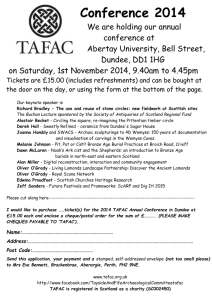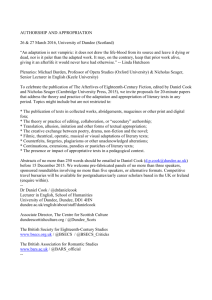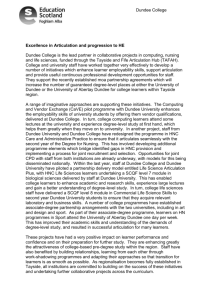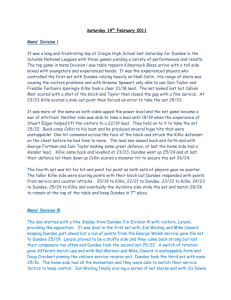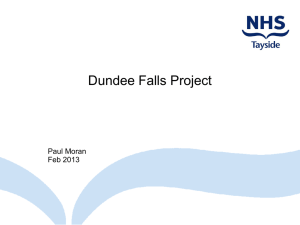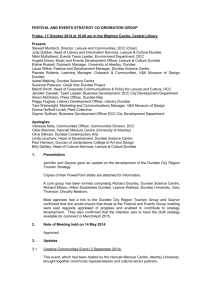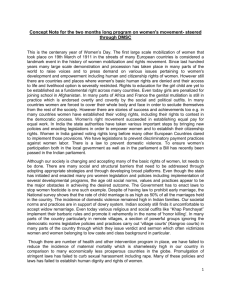Programme - University of St Andrews
advertisement
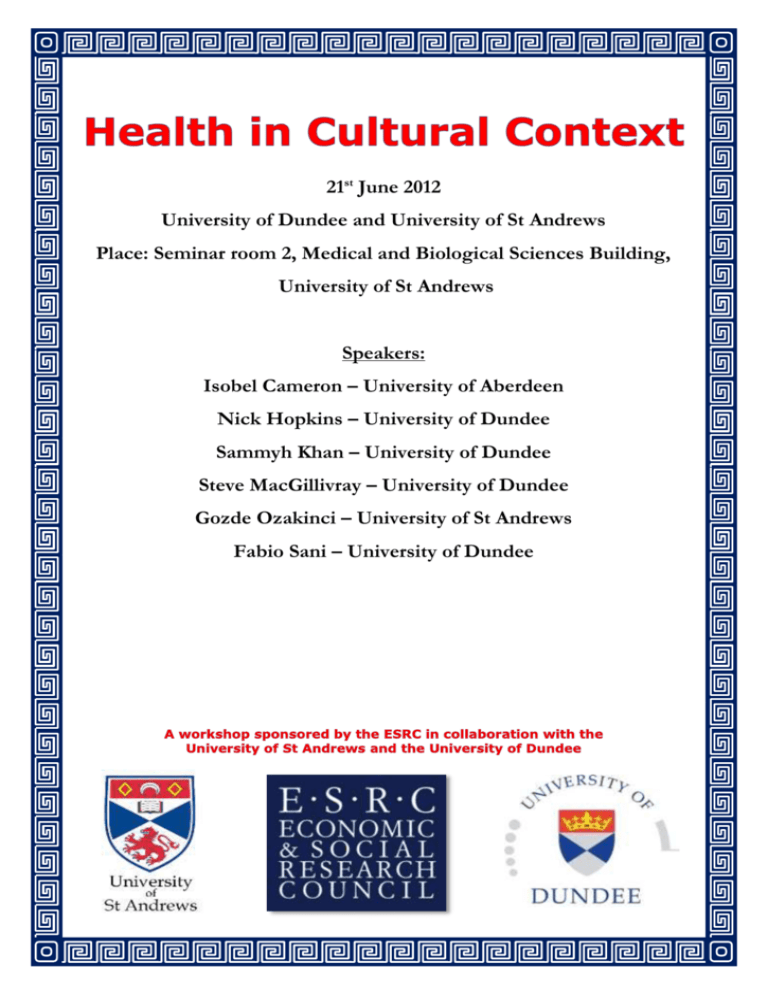
21st June 2012 University of Dundee and University of St Andrews Place: Seminar room 2, Medical and Biological Sciences Building, University of St Andrews Speakers: Isobel Cameron – University of Aberdeen Nick Hopkins – University of Dundee Sammyh Khan – University of Dundee Steve MacGillivray – University of Dundee Gozde Ozakinci – University of St Andrews Fabio Sani – University of Dundee Programme: 9:30-10:00: Registration 10:00-10:15: Welcome and Introduction Speaker: Nick Hopkins (University of Dundee) 10:15-11:00: Collective Experience and Health: A Longitudinal Study of Collective Participation in a Hindu Festival in India Speaker: Sammyh Khan (University of Dundee) 11:00-11:45: Culture and Depression: Investigating the Communication of Emotions in Northern Cultures Using an Interdisciplinary Approach Speaker: Isobel Cameron (University of Aberdeen) 11:45-12:30: Health Behaviours during Magh Mela: Explanations for Health Behaviours given by Hindu Pilgrims Speaker: Gozde Ozakinci (University of St Andrews) 12:30-2:00: Lunch 2:00-2:45: Group Identification and Mental Health Speaker: Fabio Sani (University of Dundee) 2:45-3:30: Understanding and Explaining the Role of Cultural Differences in Systematic Reviews of Randomised Controlled Trials Speaker: Steve MacGillivray (University of Dundee) 3:30-3:45: Coffee 3:45-4:30: Panel Discussion Nick Hopkins (University of Dundee),Thilo Kroll (Director of Social Dimensions of Health Institute), Elspeth Graham (University of St Andrews) Abstracts: Sammyh Khan: This presentation will describe a longitudinal study that investigated the impact of participation in a large-scale collective event upon health in an Indian context - the Magh Mela at Allahabad. The Magh Mela is the largest religious festival in the world and has a history spanning centuries with millions of pilgrims participating each year. Specifically, the study aimed to examine if, and if so, why, participation in a collective event would lead to improvements in health. First, using a matched sample of participants and non-participants, we show that pilgrims' health improved significantly after having participated in the Magh Mela. Second, we show that the increase in health can be explained by cognitive and behavioural crowd processes derived from Social Identity Theory (SIT). We end the presentation by discussing the applicability of SIT has to health psychology in different cultural contexts. Isobel Cameron: How people express their emotions is viewed to be integral to the cultural knowledge systems in which they are immersed. Yet emotions such as depression are commonly understood from a Euro-American perspective. This is reflected in the international classification systems which are applied in the diagnosis of affective disorders and in tools used to assess depressive symptoms in clinical settings. As such, caution should be applied when making sense of affect through specific cultural lenses. If northern inhabitants differ in their emotional expression from a standardised international norm, this has important implications for the recognition and treatment of affective disorders. This presentation will set out the rationale for, and describe the methods to be applied in an interdisciplinary programme of research being undertaken at the University of Aberdeen beginning in October 2012. This programme will investigate the nature of emotional expression in northern cultures by applying a wide range of methods and expertise drawn from health services research, psychiatry, anthropology, the arts, psychology, education, computing and medical sciences. Gozde Ozakinci: This presentation will describe the qualitative analyses of the open-ended entries that the Hindu pilgrims provided on their health behaviours during Mela and any changes they observed in their behaviours. We proceeded by asking them the reasons for these changes and the responses were thematically analysed. The findings showed that the reasons for these changes included the role of context (ie. Conditions in Magh Mela) as well as social and spiritual aspects for their behaviours. Fabio Sani: We all belong to social groups (e.g., family, work group, sport team). However, we may identify with a group (i.e., have a sense of belonging to the group and of commonality with other group members) to different extents. I will discuss research demonstrating that higher identification with one’s family, work-place, support group, or school predicts higher mental health across different European countries. This research also suggests that the positive health implications of group identification are stronger than, and relatively independent from the effects exerted by the amount of social contact one may have with other in-group members. Stephen MacGillivray: The paper will introduce the purposes, methods and products of meta-anlysis; outline the problem of heterogeneity; consider the role of cultural differences in contributing to heterogeneity; and consider methodological approaches to understanding and explaining it. I will be focussing on depression as an exemplar and thus will also be considering the international epidemiology and specific cultural factors that are known to exist across cultures regarding the diagnosis/recognition and treatment/management.
![Booking Form SPaRC ASM 27 March 2014[1].ppt](http://s2.studylib.net/store/data/005467834_1-e4871078a04d228fe869fa8fba421428-300x300.png)
